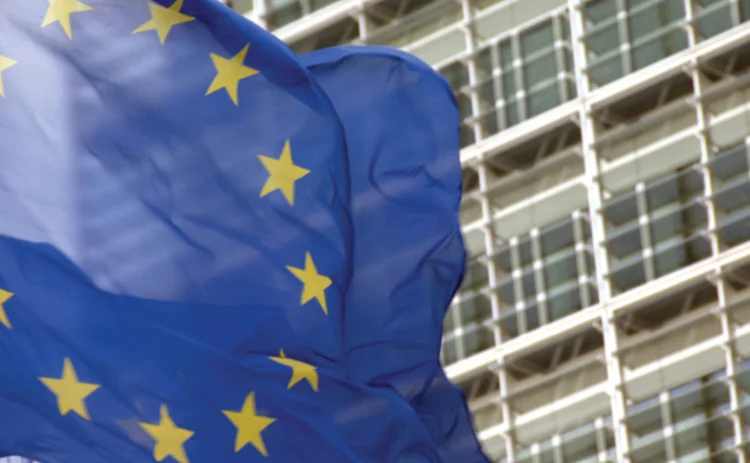MiFID 2 Mandates Industry-Led EU Tape

The European Commission has decided not to create an independent, utility-model consolidated tape of pan-European, post-trade data as part of its review of the Markets in Financial Instruments Directive, but will leave provision of a consolidated tape to competing “authorized” market data providers, and will set conditions for any vendors wishing to act as tape providers, it emerged last week.
“We have analyzed the benefits of different market models, and have examined closely the solutions adopted in other jurisdictions, notably the US. Our impact assessment indicates that the model we propose—an industry-led solution based on competition among alternative vendors—would be considered as the most proportionate in terms of improving transparency and reducing costs,” says a Commission spokesperson.
An industry-led solution was first touted in the EC’s MiFID 2 consultation paper—published on Dec. 8 last year—which sought feedback from industry participants on three proposals for a post-trade consolidated tape, with respondents asked to choose whether a tape should be run by a single non-profit entity, a single commercial entity, or whether vendors should be allowed to deliver competing tapes.
Following an extended consultation period and a concerted effort from industry bodies such as the European Consolidated Tape Group run by the MiFID Forum—a working group comprised of industry association FISD and standards bodies ISITC Europe, FIX Protocol and TWIST—to prove to the Commission that an industry-led tape was the most viable choice, the EC has opted for the third option, which allows vendors to provide competing European consolidated tapes.
“It is being presented as the ability for multiple organizations to produce the consolidated tape so there is competition in the market. It’s a difficult balance to achieve, to have a pan-EU consolidated tape and at the same time have competition, but I think the exchanges and the data vendors have talked to the European Commission and they now feel this is possible,” says Chris Pickles, head of marketing for financial markets and wholesale banking at BT Global Services and chair of the MiFID Forum.
In the latest draft of the new rules, the EC lays out conditions for prospective tape operators—such as Thomson Reuters, Bloomberg and NYSE Euronext, who have already declared their intention to create their own consolidated tapes—including “rigorous quality standards and standardized reporting formats in legislation as a prerequisite for approval as a consolidator and … rules to be implemented demanding non-discriminatory access to data for consolidators at a reasonable price.”
Specific data fields that tape operators must provide include the instrument identifier, trade price, trade volume, timestamps for when the trade was executed and reported, the trade’s price notation (currency), the venue where the trade was executed (or the code “OTC”), and an indicator of any specific trade conditions. The document also indicates that the European Securities and Markets Authority (ESMA) will develop draft regulatory technical standards to determine how this information is formatted and published, to make it easy to use for market participants and to adapt to perform other services that “increase the efficiency of the market.”
The proposals are vague on the issue of how much vendors will be allowed to charge for their consolidated tapes, saying only that they must be provided on “a reasonable commercial basis,” and the data must be made available free of charge after the standard 15-minute delay.
However, in a separate memo on the revised MiFID proposals released last week, the Commission says it will look to introduce measures to reduce the cost of consolidating pan-European data, giving hope to BT’s Pickles, who was previously skeptical that significant savings could be achieved without Commission intervention—though he adds that a non-industry-led tape would have been more costly. “One data vendor told me that they deliver 98 percent of the consolidated tape today, so filling in the gaps is much easier than starting from scratch,” he says.
According to Pickles, finalized proposals for an industry-led solution are expected by year-end, which will involve collaboration from various industry working groups, as well as the Association for Financial Markets in Europe, the Federation of European Securities Exchanges, standards body FIX Protocol Limited and potential tape providers such as Thomson Reuters, Bloomberg and NYSE Technologies who have already developed a set of standards—dubbed the Market Model Typology (MMT) Cookbook—which can be used by any vendor creating a consolidated tape, to ensure consistent content between each tape.
At this stage, it is uncertain whether ESMA will approve the Cookbook or make modifications, but the Commission spokesperson says the EC will continually monitor whichever solution is adopted. “We... consider [that] the recent industry initiatives validate our proposed approach. When this new regime [MiFID 2] has had time to prove itself, the Commission, after consulting ESMA, shall present a report on the functioning of the consolidated tape. In this report, the Commission will be looking at the availability, completeness, and quality of post-trade information, as well as user-friendliness and cost,” the spokesperson says.
Broader Implications
In the meantime, industry participants will be examining other parts of the MiFID 2 proposals expected to have a massive impact on firms, including regulation to extend MiFID’s post-trade transparency regime to asset classes other than equities, such as “all bonds and structured finance products with a prospectus, as well as all derivatives eligible for central clearing and those submitted to trade repositories regardless of where the trades take place.”
The Commission also suggests a tailor-made regime of pre-trade transparency obligations that will be calibrated to each type of financial instrument, both when traded on organized venues as well as when traded over-the-counter by investment firms, which will have the knock-on effect of creating non-equity consolidated tapes. In fact, the Commission recommends the introduction of a consolidated tape for non-equities markets after a period of two years under the same set of conditions as for the equities market.
However in a press conference last week, NYSE Euronext’s head of European government affairs Mark McGann said the exchange does not support an extension to other asset classes. “In terms of the consolidated tape provisions as they would apply to cash equities, we have long supported industry-led tapes, but we do not support… any extension of scope of the consolidated tape beyond securities to non-fungible products,” adding that this is “simply not meaningful in relation to such contracts, since securities and derivatives are fundamentally different instruments.”
The MiFID 2 draft will now be passed to the European Parliament to be scrutinized by EU member states before any proposals are implemented.
Only users who have a paid subscription or are part of a corporate subscription are able to print or copy content.
To access these options, along with all other subscription benefits, please contact info@waterstechnology.com or view our subscription options here: http://subscriptions.waterstechnology.com/subscribe
You are currently unable to print this content. Please contact info@waterstechnology.com to find out more.
You are currently unable to copy this content. Please contact info@waterstechnology.com to find out more.
Copyright Infopro Digital Limited. All rights reserved.
As outlined in our terms and conditions, https://www.infopro-digital.com/terms-and-conditions/subscriptions/ (point 2.4), printing is limited to a single copy.
If you would like to purchase additional rights please email info@waterstechnology.com
Copyright Infopro Digital Limited. All rights reserved.
You may share this content using our article tools. As outlined in our terms and conditions, https://www.infopro-digital.com/terms-and-conditions/subscriptions/ (clause 2.4), an Authorised User may only make one copy of the materials for their own personal use. You must also comply with the restrictions in clause 2.5.
If you would like to purchase additional rights please email info@waterstechnology.com
More on Regulation
Removal of Chevron spells t-r-o-u-b-l-e for the C-A-T
Citadel Securities and the American Securities Association are suing the SEC to limit the Consolidated Audit Trail, and their case may be aided by the removal of a key piece of the agency’s legislative power earlier this year.
BlackRock, BNY see T+1 success in industry collaboration, old frameworks
Industry testing and lessons from the last settlement change from T+3 to T+2 were some of the components that made the May transition run smoothly.
How ‘Bond gadgets’ make tackling data easier for regulators and traders
The IMD Wrap: Everyone loves the hype around AI, especially financial firms. And now, even regulators are getting in on the act. But first... “The name’s Bond; J-AI-mes Bond”
Can the EU and UK reach T+1 together?
Prompted by the North American migration, both jurisdictions are drawing up guidelines for reaching next-day settlement.
Waters Wavelength Ep. 293: Reference Data Drama
Tony and Reb discuss the Financial Data Transparency Act's proposed rules around identifiers and the industry reaction.
Clearing houses fear being classified as DORA third parties
As the 2025 deadline looms, CCP and exchange members are seeking risk information that’s usually deemed confidential.
Industry not sold on FIGI mandate for US reg reporting
Banks’ and asset managers’ tortured relationship with Cusip numbers remains tortured, as they tell regulators to keep the taxonomy in play.
T+1 shift sees out-of-hours human resourcing costs spike by as much as 20%
New research finds that trading firms are experiencing increased labor costs—which could be a boon for outsourced trading.








